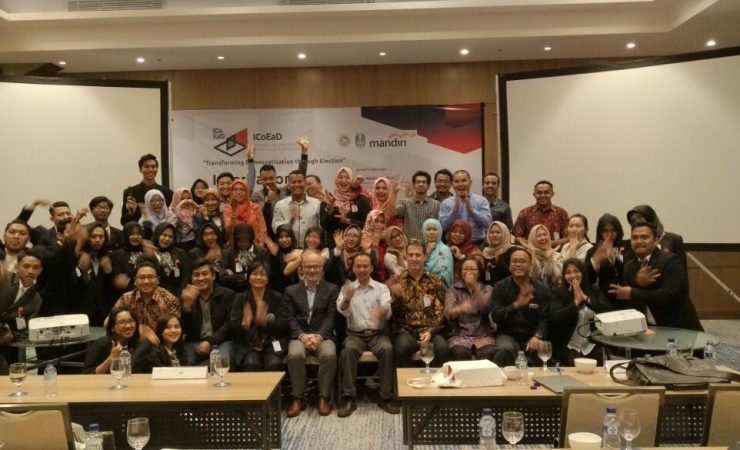UNAIR NEWS – Department of Politics is one of the seven departments in the Faculty of Social and Political Sciences (FISIP) Universitas Airlangga (UNAIR). In charge of Political Science bachelor’s and master’s programs, this department has distinct characteristics and advantages that are different from other political departments.
Head of the Department of Politics, Dr. Dwi Windyastuti Budi Hendrarti, Dra., MA explained that from several field of specialization, electoral science has become its featured field. This department oversees two programs, Political Science Bachelor’s Program and Political Science Master’s Program.
In the Political Science Master’s Program, there are three fields of specialization offered, Political Analysis, Government and Local Politics Management, and Election Governance. “Our learning orientation combines formal juridical aspects, theory, and the study of political phenomena. It makes the Department of Politics concentrations formed as it is now, “said the Head of Department of Politics appointed in early December 2020.
Dr. Dwi said that her department’s electoral science focus was from the response to reform and the direct election system which became the scientific pressure points for the Department of Politics. Moreover, the department also has highly qualified teaching staff, including Prof. Ramlan Surbakti, who is widely known as an academic and general election practitioner.
It has led the Department of Politics to collaborate with various government agencies, such as the General Election Commission (KPU) and the Corruption Eradication Commission (KPK).
Apart from the academic aspect, the Department of Politics also has an annual agenda to accelerate the SMART University program launched by UNAIR Rector. First in the academic aspect, Dr. Dwi aims to increase international collaboration by designing adjunct professor and academic collaboration programs.
“This collaboration includes journal paper writing, guest lectures, and outbound activities for students and educators. Even though it is currently in the middle of a pandemic, this plan is still ongoing, both online and offline in the future, ” she added.
Meanwhile, the implementation of the Freedom of Learning Independent Campus (MBKM) program will be conducted through the conversion of off-campus activities into semester credit units (SKS). Dr. Dwi also emphasizes activities such as internships, science competitions, and other forms of academic value activities.
“We do not hesitate to convert the freedom of learning activities into six or eight credits. One of them can be seen in our students who received Build the Quality of Indonesian Human (Bangkit) program from the Directorate General of Higher Education to take part in training related to digitalization, “explained Dr. Dwi.
This step also succeeded in encouraging the Department of Politics to send many students for apprenticeships in various agencies such as Central House of Representatives (DPR), Regional People’s Representative Council (DPRD), ministries, and private companies. It is not surprising that graduates of the department have competed and succeeded in pursuing careers in their fields.
Some reputable alumni from Department of Politics are Governor of East Java and the former Indonesian Minister of Social Affairs Khofifah Indar Parawansa, a political academic and former Chairman of the General Election Commission for the 2004-2007 Prof. Ramlan Surbakti, Special Staff of the Indonesian Ministry of Defense Widjajanto, as well as various other figures engaged in politics, media, academia, economics, and other fields.
So through these various progresses and achievements, Dr. Dwi assured that in the future, the curriculum redesign conducted by the Department of Politics would adapt more to the socio-political dynamics and demands of the times.
“Especially with the pandemic, the teaching team is now trying to innovate in the learning process by increasing interactive discussions and classes. We believe that the pandemic situation and the curriculum redesign currently being done will be able to improve the quality of the Department of Politics in the future, “concluded Dr. Dwi.
Author: Intang Arifia
Editor: Khefti Al Mawalia





